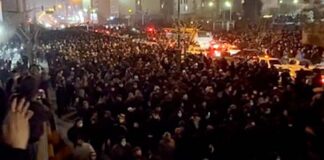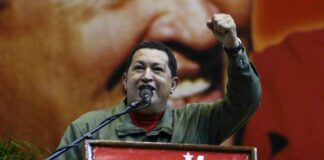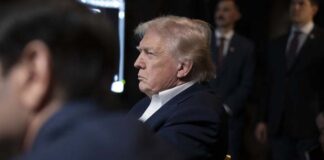Jarvis Ryan looks at the re-emergence of Russian power and explains its significance
The brief but bloody war between Russia and its neighbour and former colony Georgia, a small but important US ally, in August this year put Russia back in the international spotlight. Western commentators condemned Russian aggression and warned of a new Cold War, less than 20 years after the collapse of the once mighty Soviet Union.
Russia claimed its invasion was to defend the rights of the people of the tiny region of South Ossetia, who want autonomy from Georgia. But the real aim of prime minister Vladimir Putin and the Russian state was to reassert Moscow’s power on the global stage.
As Robert Baer, a former senior CIA operative, argued in Time magazine: “Russia’s invasion of Georgia has less to do with South Ossetia than with a Russia that never reconciled itself to losing an empire—or to being treated like a second-rate power all these years… It was only a matter of time…before Russia taught the world a lesson.”
Just what is that lesson? How seriously should we take talk of a new Cold War? What underpins Russia’s dramatic re-emergence, and is it sustainable?
Dark days
Whatever we think of the Russian state, there is no doubting it has undergone a remarkable recovery under Vladimir Putin’s leadership. Just 10 years ago the Russian economy came close to complete collapse, a victim of financial speculation and rampant corruption. The financial crisis was the final humiliation for a state that had been the world’s second superpower only a decade earlier.
After the break-up of the Soviet Union in 1991, Russia suffered a social and economic collapse virtually without modern precedent. The loss of its Eastern European satellites in 1989, and then its colonies in 1991, saw economic output plunge by 45 per cent during the transition to the free market.
Male life expectancy plunged from 64.2 years in 1989 to 57.6 in 1994 as poverty, unemployment and alcoholism soared.
Eager to punish Russia and consolidate its position as the sole remaining superpower, the US government subjected Russia to a neo-liberal “shock therapy” program of rapid privatisation and market restructuring, spearheaded by the International Monetary Fund and World Bank.
Fire sale
The senior bureaucrats of the old Soviet Union, known collectively as nomenklatura, were best placed to benefit from the fire sale of Russia’s assets. Many still held important government posts, and used their position to siphon off cash and assets for themselves and a new breed of well-connected entrepreneurs.
The “new oligarchs” amassed wealth on a scale never before seen. According to Mike Haynes, writing in International Socialism, the oligarch “Boris Berezovsky suggested that 50 percent of the economy was controlled by seven oligarchs and Mikhail Khodorkovsky said, ‘Politics is the most lucrative field of business in Russia. And it will be this way forever’.”
However, other elements within the nomenklatura realised that the robber baron style of capitalism sweeping Russia left it in danger of becoming a “failed state”, especially after the 1998 financial crisis. This group represented the nucleus of the old state—the bureaucracy, the military and the intelligence services—which had survived the 1991 debacle and whose members wanted to restore Russia’s international prestige.
Their hopes were embodied in Vladimir Putin, a high-ranking official, firstly with the former secret service, the KGB, and with its successor, the FSB. Putin was anointed as Russia’s new leader in 1999 by ailing president Boris Yeltsin.
Putin’s most pressing task was to stop the economic rot. He gradually restored a degree of state control over the economy by limiting the power of the oligarchs, culminating in the arrest and jailing of Mikhail Khodorkovsky, Russia’s biggest new capitalist, and the renationalisation of his company, the oil giant Yukos.
Oil and gas have underpinned Russia’s economic revival, accounting for more than half of all exports. Russia is the world’s largest gas producer and recently overtook the US to become the second-largest oil producer. Particularly since the resource price spike in 2002, Putin has been able to use revenues to consolidate his power and also address some of the widespread and often extreme poverty affecting ordinary people.
Growing at 6-7 per cent a year, the economy has almost doubled in size in the last decade. This largely explains why Putin has consistently enjoyed huge approval ratings. Income per capita has finally surpassed pre-1991 levels, although income distribution is far more uneven now. Many Russians have been willing to overlook Putin’s autocratic nature and the return of a repressive apparatus similar to the police state of the Stalinist era.
Putin has also sought to boost morale and expand his base by appealing to Russian nationalism and the past glories of both Tsarist Russia and the Soviet Union. Besides having political benefits, this strategy fits neatly with his second priority: to rebuild Russian geopolitical influence in “near abroad” of its former colonies.
Encirclement
Since 1991, Russia’s rulers have felt besieged by the steady eastward advancement of the US-led NATO military alliance. In 2007 Putin declared: “NATO has frontline forces on our borders.” This was a deliberate strategy on the part of the American ruling class to neuter Russian imperial power in the former Soviet colonies.
Russia was forced to suffer the ignominy of watching no fewer than nine of its former satellite states and colonies become members of NATO. The noose tightened after the 9/11 attacks when the US set up military bases in several Central Asian states.
Putin’s first chance to challenge NATO encirclement came shortly after he was appointed prime minister by Yeltsin in 1999. He ordered a massive military escalation to crush rebel fighters in the breakaway southern region of Chechnya (which borders Georgia). Thousands of civilians were slaughtered and the Chechen capital Grozny lay in ruins, but Putin had sent a message that the Russian ruling class would not cede any more territory.
Multipolar world?
This message was delivered even more emphatically in the recent war with Georgia, where Russia risked a confrontation with the US, reflecting a newfound confidence in Putin and his advisers.
Their self-assurance is based on two things. Firstly, Russia’s much stronger economic position; and secondly, an awareness that the US is significantly weakened by its military commitments in Iraq and Afghanistan.
The Russian government’s thinking was spelled out bluntly in Kremlin document in April 2007: “The myth about the unipolar world fell apart once and for all in Iraq… A strong, more self-confident Russia has become an integral part of positive changes in the world.”
Some important figures on the left welcome Russia’s re-emergence as a counterweight to US power. Venezuelan president Hugo Chavez is among them. Dilip Hiro reported in Salon.com that “while visiting Moscow in June 2007, [Chavez] urged Russians to return to the ideas of Vladimir Lenin, especially his anti-imperialism. ‘The Americans don’t want Russia to keep rising,’ he said. ‘But Russia has risen again as a centre of power, and we, the people of the world, need Russia to become stronger.’”
But just how powerful is Russia, and what should our attitude be? Sweeping claims about America’s decline, and Russia’s supposed revival, need to be kept in perspective. Russia’s economic output is still roughly similar to what it was 20 years ago, and its economic base much narrower. The recent fall in commodity prices will certainly dent its influence. For its part, the US is weakened but remains by far the most powerful economic and military force on earth.
The American Conservative offers a more nuanced view of Russian power, pointing out that “Russia’s strategic aims are [most likely] modest, largely confined to its own neighbourhood” and “more defensive than offensive”.
Hiro offers a similarly cautious view: “with not even a decade of this century behind us, we are already witnessing the rise of a multipolar world in which new powers are challenging different aspects of American supremacy—Russia and China in the forefront, with regional powers Venezuela and Iran forming the second rank. These emergent powers are primed to erode American hegemony, not confront it, singly or jointly.”
Russia is not siding with the popular movements from below that are challenging imperialism. On the contrary: Putin is a nasty autocrat who wants to eradicate dissent in his own country, and reinstate Russian imperial power in Central Asia and the Caucasus. Hiro is right to say Russia is not seeking a confrontation: it is seeking a better bargaining position for Russian capitalism within the post-Cold War world.
We should not echo the hypocritical denunciations of Russia typical of the Western press. Putin is guilty of many killings and human rights violations, but in that regard he is not so different to our own supposedly democratic rulers, who continue with their bloody wars in Iraq and Afghanistan and restrict civil rights at home.
The conflict in Georgia is evidence of a shift to a more multipolar world, but that is not without its complications. A stronger Russia makes future conflicts with the US and other states more likely. The left’s task is not to take sides but to build the radical movements from below that can challenge the imperialist powers and their profit-driven mentality.
Further reading
- Mike Haynes, “The uncertain return of Russian power”, International Socialism #116, www.isj.org.uk.
- Dave Crouch, “Nato and Russia: Georgia on their minds”, Socialist Review, September 2008, www.socialistreview.org.uk.





